This page gives some useful definitions for understanding, explaining, and using PICSA. Other useful definitions and information is available in the PICSA manual.
Smallholder farmers
These are farmers who cultivate crops, and/or rear livestock on small areas of land, often without access to modern technologies.
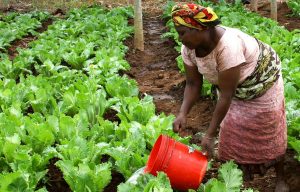
Crop, livestock and livelihood options
Options are alternative ways of doing things, which can help the farmer to deal with the challenges and opportunities they face, mainly related to the climate and weather conditions of their local area.
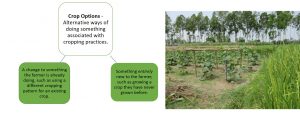
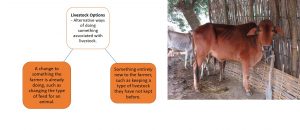
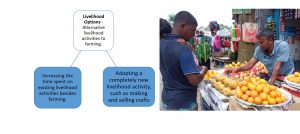
Climate
Climate – The long-term average weather conditions and dynamics of a specific area over a period of at least 30 years.
(Also see a more detailed definition by the World Meteorological Organisation at this link)
Weather – Short term changes in the atmosphere over periods of minutes up to months.

Climate Change – A statistically-significant trend of change in the climate over at least 30 years.
Climate Variability – Deviations in climatic characteristics, such as temperature and rainfall, from the average conditions. These deviations may be monthly, seasonal, annual, decadal or even longer. Consecutive summers, for example, will vary in that some will be cooler and some warmer than the long-term average. Climate variability may exist at the same time as climate change, but typically occurs over a much shorter timeframe.
Historical Climate Information – Data, usually collected daily by national meteorology services, which shows variability and trends in climatic conditions (rainfall, temperature etc) over a period of at least 30 years and presented in a way that is useful and useable for farmers as decision-makers.
The PICSA Principles
The Farmer Decides – farmers are best placed to make decisions about their agricultural practices, because they have detailed knowledge of their farm, system and environment, and they also face the consequences (whether favourable or unfavourable) of their decisions.
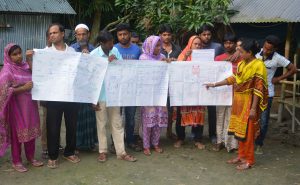
Options by Context – The understanding that all farmers are individuals with different access to resources, different social characteristics, different attitudes to risk and different goals, among other things. The options that are suitable for, or that interest, a farmer are therefore likely to differ from farmer to farmer.
